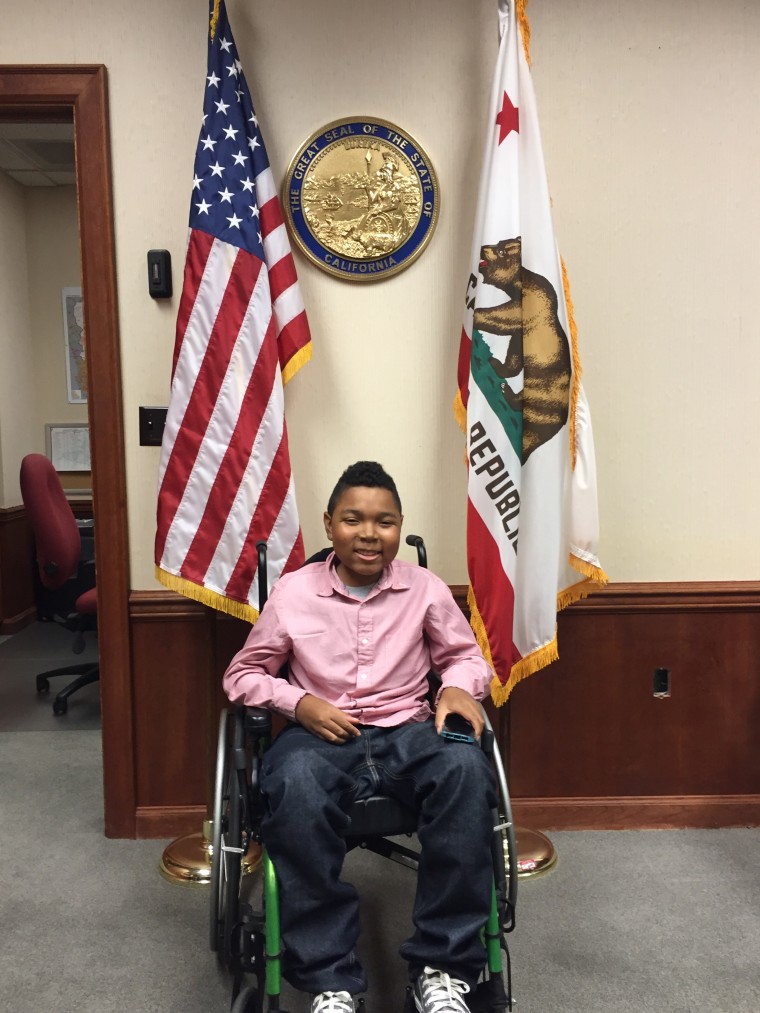When Damon Woods of San Diego, Calif, was diagnosed four years ago with Duchenne muscular dystrophy, a rare and fatal muscle disorder, his mother, Charaine vowed to do whatever it took to save his life.
This week, Woods and other families were dealt a blow when the Food and Drug Administration (FDA) declined to approve Kyndrisa, generically known as drisapersen, an experimental drug that had shown promise in treating Woods and other boys affected by Duchenne muscular dystrophy.
According to the national non-profit, CureDuchenne, Duchenne is the most common and lethal form of muscular dystrophy. As the leading genetic killer of young boys, Duchenne affects more than 300,000 patients worldwide, primarily boys and young men, and there is currently no FDA-approved therapy specifically designed to treat Duchenne.
A New Medication Provides Hope
After her son, Damon, was diagnosed with Duchenne muscular dystrophy at the age of nine, Charaine watched helplessly as her once vibrant child became weaker and began falling. She was only too aware of how most boys diagnosed with the condition suffer from muscle degeneration that ultimately affects their heart and breathing muscles, leaving them unable to walk or breathe.

Then in 2013, Woods learned about a new clinical trial for drisapersen (Kyndrisa), a high-tech drug designed to fix the underlying genetic defect causing the progressive muscular decline seen in children with Duchenne. Manufactured by BioMarin Pharmaceutical in Novato, Calif., the drug underwent clinical trials at the University of California, Davis, and a handful of other research centers across the country. Woods made the 500-mile trek with Damon to Sacramento each week, believing it was worth it if the medication could give Damon a shot at a long and productive life.
“After a month of being on drisapersen, Damon was able to walk upstairs and he wasn’t falling anymore,” Woods says. “He was able to be independent and the drug seemed to be slowing the progression of the disease.”
“We are physically and emotionally exhausted as we not only fight for a treatment but as Damon battles every day of his life with this disease.”
Dr. Craig McDonald, professor and chair of the Department of Physical Medicine Rehabilitation at UC Davis, was quoted in a news release as saying that drisapersen was “the most exciting treatment approach I have witnessed in my career for Duchenne muscular dystrophy,” and that he was hopeful “it will delay many of the disease’s manifestations and ultimately improve life expectancy for patients.”
Woods was optimistic drisapersen would receive approval from the Food and Drug Administration (FDA). In November, she spoke at the FDA advisory committee’s hearing regarding the investigational treatment helping her son, and there wasn’t a dry eye was in the house.
Rallying After a Setback
Hope turned to disappointment this past week when the FDA issued a statement saying they “concluded that the standard of substantial evidence of effectiveness has not been met” and that the “treatment is not ready for approval in its current form.”
“I am very disappointed about the FDA drisapersen decision,” says Debra Miller, co-founder of the Newport Beach, Calif., non-profit, CureDuchenne. “As a parent and patient advocate, I believe there was ample evidence to approve this drug on a conditional basis while they confirm the effectiveness and safety over a longer term study.”

Woods also expressed sadness at the news.
“We have done everything in our power to beg for a treatment for Damon’s life and sadly we have been rejected,” Woods says. “We are physically and emotionally exhausted as we not only fight for a treatment but as Damon battles every day of his life with this disease.”
BioMarin said Thursday they will continue clinical trials of drisapersen and “will work with the FDA to determine the appropriate next steps regarding this application.”
While Damon is still receiving drisapersen from BioMarin as they collect more data, Woods is uncertain what the future holds for her son and other boys affected with Duchenne muscular dystrophy.
“We have seen the difference this medication makes in Damon's life. I know that without drisapersen he will become a boy trapped in his own body with absolutely no control over it, completely paralyzed most likely by the age of 17 or 18,” Woods says. "I plan on doing everything I can to help get drisapersen approved. It’s not just for Damon, but all the children who are waiting on a treatment for this life-stealing, devastating disease.”
